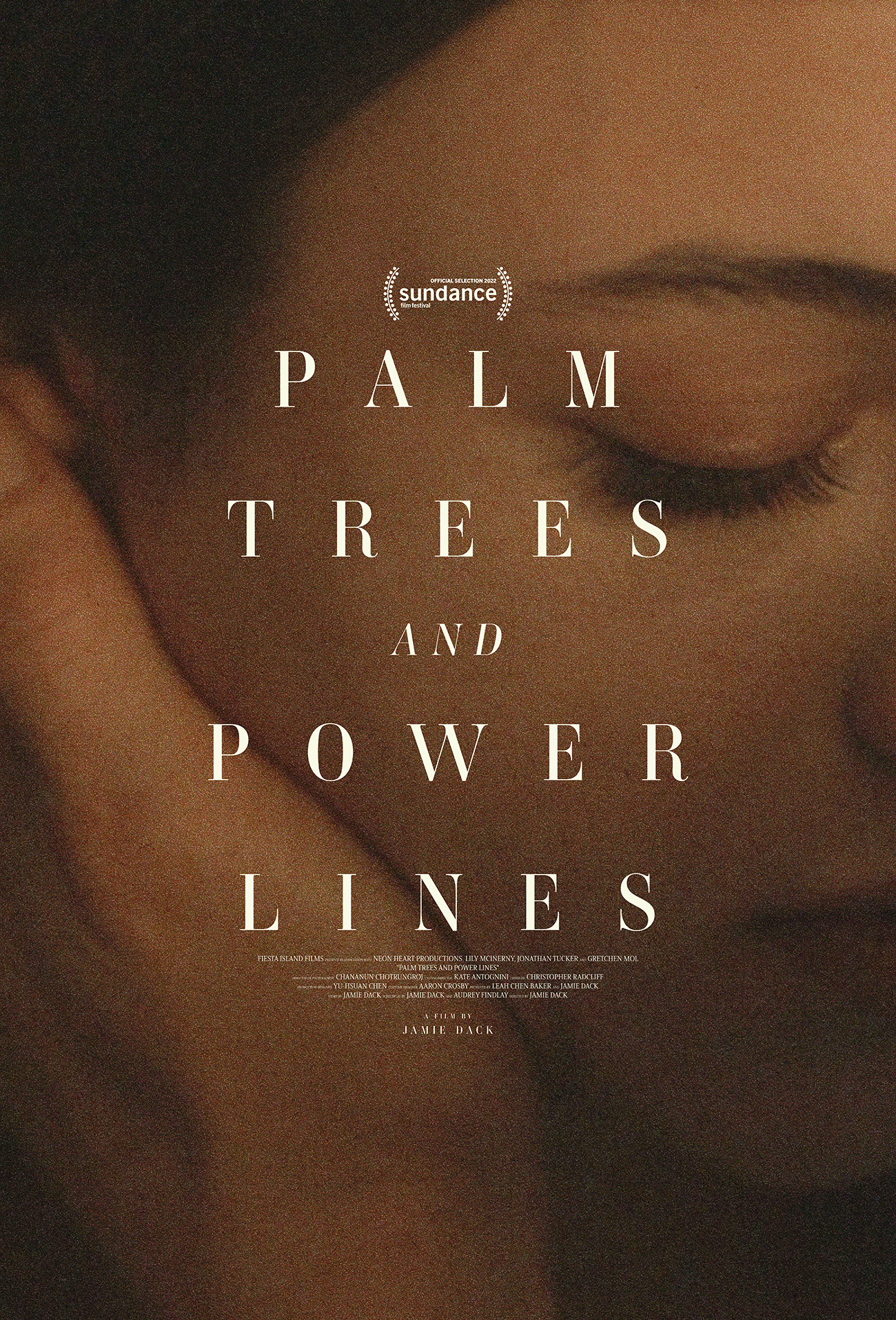Now Playing
Current DJ: Commodore Jones
Unlettered The Great Dwindle from Five Mile Point (self-released) Add to Collection
Requests? 773-DJ-SONGS or .(JavaScript must be enabled to view this email address)
 CHIRP Radio volunteer Kevin Fullam reports from the 2022 Chicago Critics Film Festival
CHIRP Radio volunteer Kevin Fullam reports from the 2022 Chicago Critics Film Festival
This past winter, I laid out my thoughts on Red Rocket, about an 45-year-old porn star's unwholesome pursuit of a small-town high-school beauty. In Palm Trees and Power Lines, the basic framework is the same, but the lens through which we view the tale is oh-so-different.
Lea (Lily McInerney) is a bright but bored 17-year-old, spending her summer days sunbathing in her backyard and hanging with her equally lackadaisical classmates. There's a pseudo-boyfriend in the mix, but Lea is only mildly interested.
One evening, she catches the eye of Tom (Jonathan Tucker) at a diner, and when the owner grabs Lea after she and her friends have run out on the bill, it's Tom who helps her escape.
She refuses the friendly offer of a ride home, so her new benefactor decides to drive alongside her as she walks, "just to make sure she's safe." How old is Tom? 34. Oof. But when they depart, he gives her his number... and so the seed is planted.
At home, the attention Lea receives from her single mom (Gretchen Mol) seems to wax and wane based on the latter's dating itinerary, and soon enough, Lea contacts Tom. They meet outside to talk, and it's clear that Tom is providing what she so desperately lacks: a person who's interested in her life. She's clearly smitten with his charisma and maturity, and the pair commiserate on having grown up with absent fathers -- a point that will become significant later on.
Eventually, the chats lead to make-out sessions, and then an invite to Tom's home. Except that Tom lives in a shabby motel, as his "lease just ran out and he's looking for a better place." Uh-huh. When Lea is about to enter, she pauses at the doorway, somehow sensing that this is a monumental step. It is.
All the while, we see the entire story from her point of view. When Tom has to step outside to take a call, the camera stays with Lea. Who is he talking to? Why are people banging on his door in the middle of the night? We're in the dark as much as she is.
Even though we viewers know that Tom is Bad News, there's a reveal in the last third of the film that I couldn't see coming and won't share here. This is a Master Persuader at work. He never "forces" Lea to do anything, but his low-key strength of will wears her down so that she often acquiesces through indecision.
Palm Trees is director Jamie Dack's feature debut, adapted from a short that premiered at the 2018 Cannes Festival. It's clear that the tale is at least semi-autobiographical in nature, and she says as much here:
"I was thinking a lot about some relationships I had when I was younger, and [how] I thought that I was in control of them and consciously choosing them for myself. But now that I am an adult... I realize that that wasn’t necessarily the case. I wanted to write this character who serves as a proxy for my younger self, which allowed me to explore what had happened to me, but also what could have happened to me."
It's possible that the ambiguity of the final scene might frustrate some viewers, but it's truly the cherry on top of a masterpiece here -- it's up to the audience to extrapolate as to where Lea's story might head. And while I enjoyed Red Rocket, this is a superior film, and my favorite of this year's festival.
Next entry: CHIRP Radio Weekly Voyages (June 6 - June 12)
Previous entry: 2022 Chicago Critics Film Festival: “To Leslie”